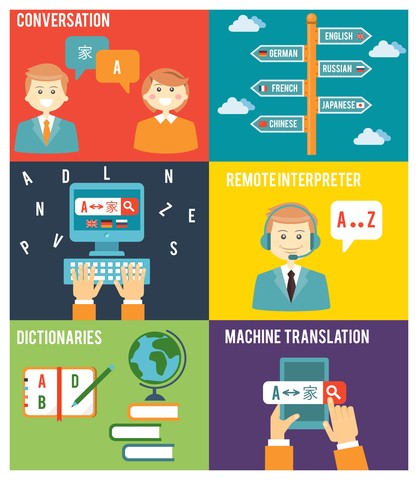With Google’s ultra-slick marketing and already world-crushing popularity within almost every field of technology – it is unsurprising that the latest news of Google developing ‘multiple language voice detection’ for translation has got the world talking. In a recent ‘ask me anything’ session on the popular community site – Reddit, y exampleJon Wiley (Principle Designer of Google Search) revealed that they were working on a “really cool feature for voice search” which in essence allows the user to speak in multiple/mixed languages and Google would recognise this and translate the two or more source languages into the target language, i.e. Google would automatically detect which language is being used at any moment.
Wiley went on to admit that the system had a flaw; being that such as the Web’s almost infinite array of languages, machine translation can never be infallible – and thus the detected language may not be the user-intended language. To partly get around, he mentions that a simple toggle of the language settings will display multiple results for the search, i.e. if the two source languages are English and Spanish, the search results will be a mix of English and Spanish, but only those relevant to the particular language of each individual word (or short phrase). For example, if the search was “La responsabilidad de proteger; timely and decisive” the top results would have both these two phrases within them. The reason why one would possibly want to search that is because “timely and decisive” is a commonly used ‘sound bite’ within official United Nations documentation; however Spanish, an official language of the United Nations, does not have a direct translation for the word “timely”, the closest being “eficiente” and thus the need for multiple language translation becomes essential in this case.
Indeed, it (voice recognition) is a system that, at the very least, requires decent speech clarity and pronunciation, as well as inflection within phrasing, which leaves a huge challenge for any voice detection designer to account for rich accents and local dialects of a particular language. A question that springs to my mind is; which accent is the ‘default’ accent for a voice detection to recognise? For example; a “southern” English accent, compared to a Newcastle (Geordie) accent, is considered to be very clear and straightforward – whereas Geordie is rich in its variety to its southern counterpart – with many colloquialisms, some of which are unrecognisable to a “non-native”. However, this is a problem that current voice recognition has already had to face – except now things have got a whole lot more complicated, with a larger number of languages with an almost infinite number of dialects. I work at a translation company called Pangeanic where I deal with many languages, accents and I am familiar with nuances… I can vouch for the difficulty of the task.

Where it is true that this news has got people excited (including myself), I sit here wondering if that excitement is solely due to the potential benefits that multiple language voice detection may yield – or is it a simple celebration of arbitrary technological advancement from a company who are also in the process of developing glasses with miniature computers in them; a strange futuristic concept which has been a popular choice with film directors and authors alike to depict their visions of an outlandish future which is way beyond the scope of their lifetimes. In truth, the answer to that question is probably a bit of both.

